
Find Help
More Items From Ergsy search
-

Is there a cure for Crohn's disease?
Relevance: 100%
-

Is Crohn's disease contagious?
Relevance: 72%
-
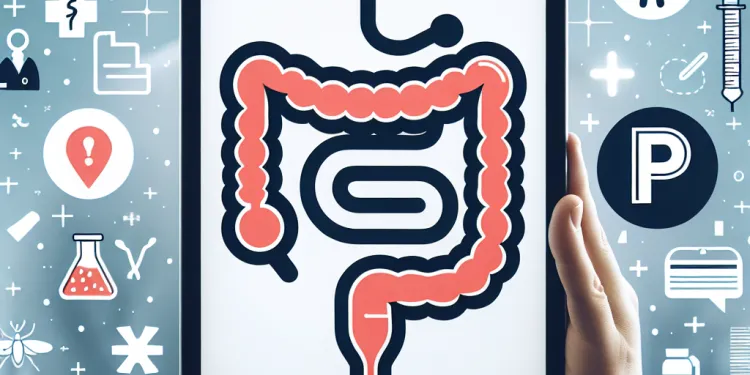
Is surgery necessary for Crohn's disease?
Relevance: 72%
-
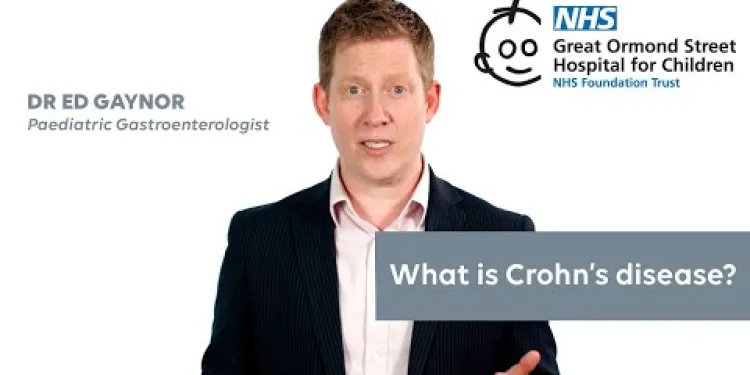
What is Crohn’s disease and how is it treated?
Relevance: 71%
-

What treatments are available for Crohn's disease?
Relevance: 70%
-

What causes Crohn's disease?
Relevance: 70%
-

Can children develop Crohn's disease?
Relevance: 66%
-
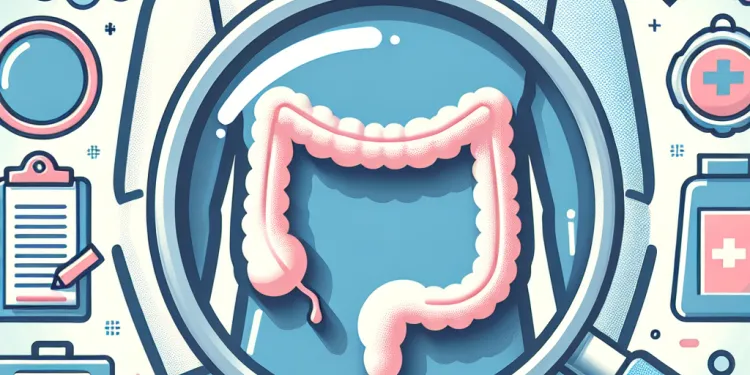
How is Crohn's disease diagnosed?
Relevance: 66%
-

Can stress make Crohn's disease worse?
Relevance: 66%
-
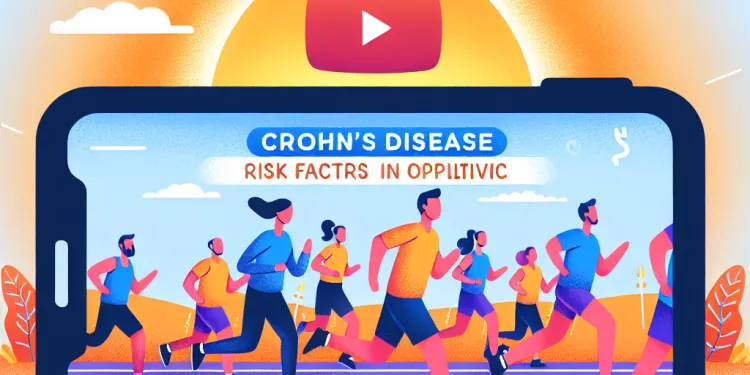
Who is at risk of developing Crohn's disease?
Relevance: 65%
-
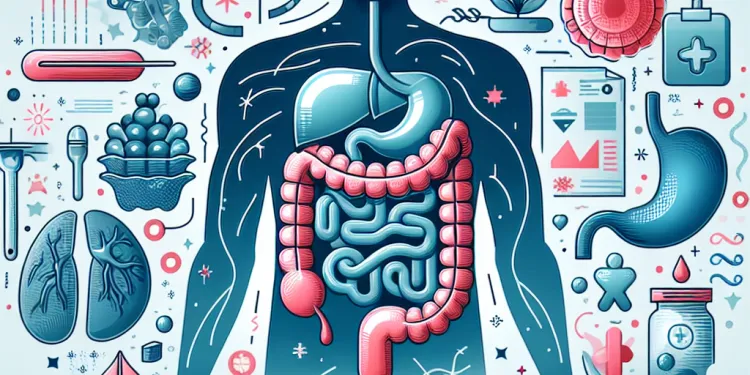
Are there any complications associated with Crohn's disease?
Relevance: 63%
-

What dietary changes can help manage Crohn's disease?
Relevance: 63%
-

What is the best diet for Crohn’s disease?
Relevance: 63%
-

What are the common symptoms of Crohn's disease?
Relevance: 62%
-
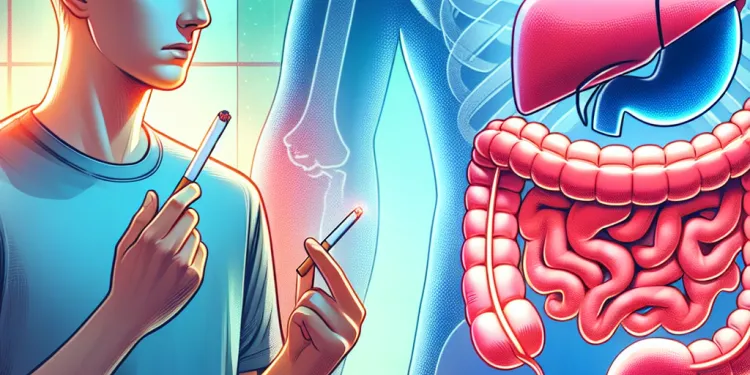
How does smoking affect Crohn's disease?
Relevance: 61%
-

What support is available for people with Crohn's disease in the UK?
Relevance: 60%
-

Can Huntington's disease be cured?
Relevance: 53%
-

Is there a cure for motor neurone disease?
Relevance: 51%
-

Infliximab infusion (Remicade) for Crohns Disease at Addenbrookes NHS hospital
Relevance: 51%
-
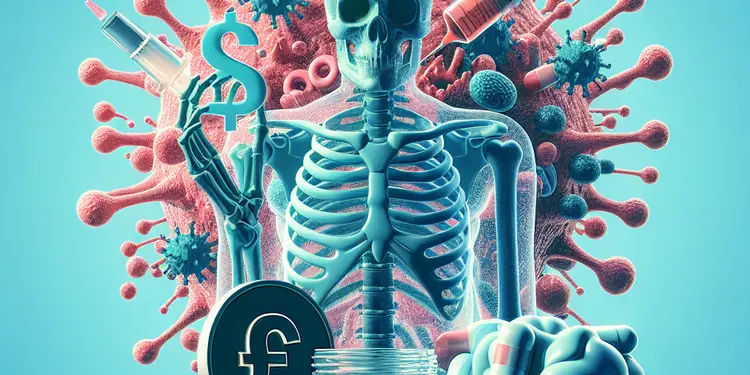
Can antibiotics alone cure flesh-eating disease?
Relevance: 42%
-

Is there a cure for dementia?
Relevance: 39%
-

Is there a cure for psoriasis?
Relevance: 37%
-

Is there a cure for ADHD?
Relevance: 35%
-

Can sleep apnea be cured?
Relevance: 34%
-

Is there a cure for eczema?
Relevance: 34%
-

Can autism be cured?
Relevance: 34%
-
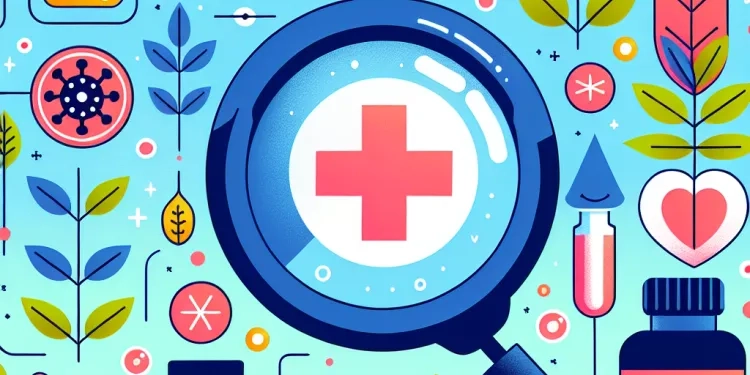
What is the principle of 'like cures like'?
Relevance: 34%
-

Can tinnitus be cured?
Relevance: 33%
-

Can asthma be cured?
Relevance: 33%
-

Is Huntington's disease fatal?
Relevance: 32%
-

What is Mitochondrial disease?
Relevance: 32%
-

Is there a cure for Nipah Virus?
Relevance: 31%
-

Does Abiraterone cure prostate cancer?
Relevance: 31%
-
Can mitochondrial disease be cured?
Relevance: 31%
-

Is there a way to cure a cold quickly?
Relevance: 31%
-
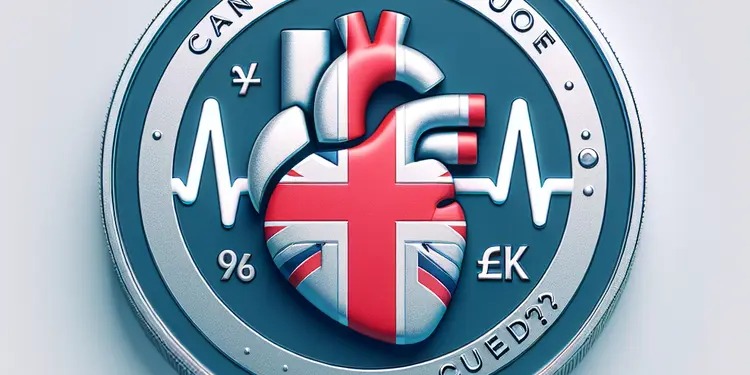
Can heart failure be cured?
Relevance: 30%
-

Is there a cure for nut allergies?
Relevance: 30%
-

Is there a cure for cold sores?
Relevance: 30%
-

What is Huntington's disease?
Relevance: 30%
-

What is Parkinson's disease?
Relevance: 30%
Is There a Cure for Crohn's Disease?
Crohn's disease is a chronic inflammatory condition of the gastrointestinal tract and a type of inflammatory bowel disease (IBD). It affects millions globally, including individuals in the United Kingdom. Many patients and their families often ask whether there is a cure for this condition. Unfortunately, at present, there is no known cure for Crohn's disease. However, various treatments can help manage symptoms and improve the quality of life for those affected.
Current Treatments for Crohn's Disease
While a cure remains elusive, multiple treatment options aim to reduce inflammation, manage symptoms, and induce remission. In the UK, these treatments include medication, dietary adjustments, and sometimes surgery. Medications such as aminosalicylates, corticosteroids, immunosuppressants, and biologic agents are commonly used. Each of these can be tailored to an individual's specific needs and disease severity. Physicians often closely monitor patients to optimize their treatment plans effectively.
Research and Promising Developments
Ongoing research in the UK and worldwide focuses on finding more effective treatments and, ultimately, a cure for Crohn's disease. Genetic studies, microbiome research, and innovative therapies provide hope for new breakthroughs. Several promising trials are underway, investigating novel drugs, stem cell treatments, and personalized medicine approaches that target the underlying causes of inflammation rather than just the symptoms.
Living with Crohn's Disease
Living with Crohn's disease requires a comprehensive approach, including medical treatment, lifestyle changes, and psychosocial support. Support groups and resources available in the UK, such as Crohn’s & Colitis UK, offer valuable information and community support for those affected by the disease. Engaging in regular consultations with healthcare providers, maintaining a balanced diet, and staying informed about new research can significantly help individuals lead a fulfilling life despite the challenges of Crohn's disease.
Can Crohn's Disease Be Cured?
Crohn's disease is a long-lasting illness that makes your tummy area sore and upset. It is a type of illness called inflammatory bowel disease (IBD). Lots of people around the world, including in the UK, have this illness. People often wonder if there is a way to make Crohn's disease go away for good. Right now, there is no cure for Crohn's disease. But don't worry, there are treatments that can make you feel better and help you have a good life.
How Is Crohn's Disease Treated?
There is no cure yet, but there are ways to help with the symptoms and make the tummy less sore. In the UK, doctors use medicines, changes in what you eat, and sometimes surgery to help people with Crohn's disease. Medicines like aminosalicylates, corticosteroids, immunosuppressants, and biologic agents can help. Your doctor will choose the best treatment for you and will check to see how it's working. They want to make sure you feel as good as possible.
What Are Scientists Doing to Help?
Scientists in the UK and all over the world are looking for better treatments and a cure for Crohn's disease. They are studying genes, tiny organisms in our body, and new therapies. Some new tests are being done with new medicines and treatments to find better ways to help people with Crohn's disease. These studies give hope that someday there might be a cure.
Living with Crohn's Disease
If you have Crohn's disease, there are many ways to live well. This includes taking your medicine, changing your lifestyle, and getting support from others. In the UK, groups like Crohn’s & Colitis UK can help by giving you information and letting you meet other people with the same illness. You should also see your doctor regularly, eat healthy foods, and keep learning about any new information on Crohn's disease. All these things can help you live a happy life, even with Crohn's disease.
Frequently Asked Questions
Is there a cure for Crohn's disease?
Currently, there is no known cure for Crohn's disease. Treatment focuses on managing symptoms and achieving long-term remission.
What causes Crohn's disease?
The exact cause of Crohn's disease is unknown, but it is believed to be due to a combination of genetic, environmental, and immune system factors.
What are the common symptoms of Crohn's disease?
Common symptoms include abdominal pain, diarrhea, fatigue, weight loss, and malnutrition. Symptoms can vary in severity and frequency.
How is Crohn's disease diagnosed?
Diagnosis typically involves a combination of blood tests, stool tests, endoscopy, colonoscopy, and imaging studies like MRI or CT scans.
What treatments are available for Crohn's disease?
Treatments may include medication (such as anti-inflammatory drugs, immune system suppressors, and biologics), dietary changes, and sometimes surgery.
Can diet affect Crohn's disease?
Yes, diet can impact Crohn's disease symptoms. Some patients may benefit from dietary changes or nutritional supplements to help manage their condition.
Is Crohn's disease hereditary?
Crohn's disease is not directly inherited, but having a family member with the condition can increase your risk of developing it.
How does stress affect Crohn's disease?
Stress doesn't cause Crohn's disease, but it can exacerbate symptoms and trigger flare-ups in some individuals.
What complications can arise from Crohn's disease?
Complications may include bowel obstruction, ulcers, fistulas, malnutrition, and increased risk of colon cancer.
Is there a difference between Crohn's disease and ulcerative colitis?
Yes, both are types of inflammatory bowel disease but affect different parts and layers of the gastrointestinal tract. Crohn's can affect any part, while ulcerative colitis only affects the colon and rectum.
Can Crohn's disease go into remission?
Yes, with appropriate treatment, many individuals can achieve and maintain remission, where symptoms are minimal or nonexistent.
Are there support groups available for people with Crohn's disease in the UK?
Yes, there are several support groups and organisations such as Crohn's & Colitis UK that provide resources and support for those affected.
What role do biologics play in treating Crohn’s disease?
Biologics are medications that target specific components of the immune system to reduce inflammation and maintain remission.
Can children develop Crohn's disease?
Yes, Crohn's disease can be diagnosed at any age, including in children and adolescents.
Is it safe for someone with Crohn's disease to get vaccinated?
Generally, vaccines are safe and recommended for individuals with Crohn's disease, but always consult with your healthcare provider, especially if taking immunosuppressive medication.
Can doctors make Crohn's disease go away?
Crohn's disease is a sickness that affects the tummy and intestines. Right now, doctors can't make it go away completely. But, they can help by giving medicine and other treatments to make people feel better.
If you have Crohn's disease, it's important to talk to doctors and follow their advice. They might give you medicine, special food to eat, or other help.
Some people find it useful to talk to others with Crohn's disease for support. You can also use tools like picture charts, apps, or have someone read difficult information to you. Always ask if you need help to understand things better.
There is no cure for Crohn's disease right now. Doctors help people feel better by treating the symptoms and trying to make the disease go away for a long time.
What makes Crohn's disease happen?
Crohn's disease can make your tummy upset. We don't know exactly why it happens. Here are some things that might make it happen: - **Germs**: Little things called bacteria might be involved. - **Family**: If someone in your family has it, you might get it too. - **Body Reaction**: Your body might make a mistake and attack itself thinking it's fighting germs. If you need help, using pictures, simple books, or talking with a doctor can help you understand better.No one knows for sure what causes Crohn's disease. It might happen because of genes, things around us, and the body's defense system (called the immune system).
What signs show someone might have Crohn's disease?
Here are some signs to look for:
- Tummy pain that happens often.
- Need to use the bathroom a lot.
- Not feeling hungry or losing weight.
- Feeling very tired.
If you think you have these signs, ask a grown-up to help you talk to a doctor.
You can use tools like picture boards or apps that help explain how you feel if talking is hard for you.
Some symptoms are tummy pain, runny poo, feeling very tired, losing weight, and not getting enough nutrients. These symptoms can be different for each person and might come and go.
How do doctors find out if you have Crohn's disease?
Doctors use different tests to find out what is wrong. They might take some of your blood for a blood test, or look at your poop with a stool test. They can also use a small camera to look inside your body with an endoscopy or colonoscopy. Sometimes, they use special pictures called MRI or CT scans to see inside your body.
What Can Help People with Crohn's Disease?
If you have Crohn's disease, there are ways to help you feel better.
Here are some things you can try:
- Medicine: Doctors can give you medicine to help your tummy feel better.
- Healthy Food: Eating good food can help your body stay strong.
- Rest: Getting plenty of sleep helps your body heal.
- Talking to a Doctor: Go to the doctor when you don't feel well. They know how to help.
You can also use tools like pictures or videos to understand better. Ask someone you trust to help you learn more.
You might need medicine to help you feel better. This can include pills to stop swelling, calm your body's defenses, or special medicine from doctors.
Changing what you eat might also help.
Sometimes, you might need an operation to fix what is wrong.
Here are some ways to help understand and remember:
- Make a list of your medicines.
- Write down the foods that help or hurt you.
- Talk to your doctor if you have questions.
Can food change Crohn's disease?
Does the food you eat help or hurt Crohn's disease? Let's talk about it in a simple way.
Sometimes certain foods can make Crohn's disease worse. Other foods might help you feel better. It's good to know what foods work for you!
Here are some tips:
- Try to keep a food diary. Write down what you eat and how you feel.
- Talk to a doctor or a dietitian. They can help find the best foods for you.
- Eat meals slowly and relax while eating.
- Try small meals instead of big ones.
Using these ideas may help you feel better with Crohn's disease.
Yes, the food you eat can affect Crohn's disease symptoms. Some people feel better if they change their diet or take vitamins and supplements.
Can you get Crohn's disease from your family?
Crohn's disease is not passed down exactly from parents to children. But if someone in your family has it, you might have a bigger chance of getting it too.
How does stress affect Crohn's disease?
Stress means feeling worried or nervous. It can make things worse for people with Crohn's disease. Crohn's disease is when your tummy hurts and you might need to go to the bathroom a lot.
When you are stressed, your body has a harder time feeling good. This can make the tummy pain from Crohn's worse. Try to stay calm to help your tummy feel better.
Here are some ways to help with stress:
- Take deep breaths.
- Go for a walk or do some light exercise.
- Talk to someone you trust about how you feel.
- Listen to calming music.
Stress doesn't make Crohn's disease happen, but it can make the symptoms worse and cause flare-ups for some people.
What problems can come from Crohn's disease?
Problems can happen. The tummy might get blocked. You might get sore spots inside like ulcers. Little tunnels called fistulas can form. You might not get enough good stuff from food, which is malnutrition. There is also a higher chance of getting colon cancer.
Are Crohn's disease and ulcerative colitis different?
Crohn's disease and ulcerative colitis are two different illnesses. They both cause swelling inside the tummy. But they are not the same.
Here is how they are different:
- Crohn’s disease: This can happen in any part of the tummy. It can even go very deep into the tummy walls.
- Ulcerative colitis: This only happens in the large intestine (also called the colon). It causes sores on the inside lining of the colon.
If you want to know more or need help, talk to a doctor or a nurse.
Yes, both are types of tummy diseases that cause swelling. They are different because they affect different parts of the tummy. Crohn's can affect any part of the tummy, but ulcerative colitis only affects the large intestine and the end of the large intestine (called the rectum).
If you need help reading, you can use tools that read the text out loud or highlight words as you read. Reading with a friend or using picture books can also make it easier to understand.
Can Crohn's disease get better?
Yes, Crohn's disease can get better for a while. This is called remission. It means you might have no symptoms for some time.
It's important to take your medicine and listen to your doctor. Eating healthy food and avoiding stress can help too.
Using tools like picture charts and easy-to-read guides can help you understand your health. Talk to your family or doctor if you have questions.
Yes, with the right help, many people can get better. Their symptoms can go away or be very small.
Can people with Crohn's disease find help groups in the UK?
Crohn's disease is a tummy illness. Do you want to know if there are groups in the UK where people can meet others with Crohn's and talk or share?
Try asking a doctor or nurse for ideas on where to find a group.
Look on the internet for more help. Some websites might have lists of groups you could join.
You can also try to find online groups where people chat and help each other.
Talking to others can make you feel better and help you learn more.
Yes, there are groups and places like Crohn's & Colitis UK that help people. They have tools and people who can talk to you and help you feel better.
How do biologics help people with Crohn’s disease?
Biologics are special medicines. They help by focusing on certain parts of the body’s defense system. This can calm down swelling and keep people feeling better.
Can kids get Crohn's disease?
Yes, kids can get Crohn's disease. This is an illness that affects the stomach and gut. It can make the tummy hurt and cause problems with going to the bathroom.
If you think a child has Crohn's, it's important to see a doctor. The doctor can help and give medicine if needed.
For help with reading, you can use audiobooks or ask someone to read with you.
Yes, doctors can find out if someone has Crohn's disease at any age. This means kids and teenagers can have it too.
Can someone with Crohn's disease get a vaccine safely?
If you have Crohn's disease, you might wonder about getting a vaccine. Vaccines help your body fight sickness.
Talk to your doctor. They know your health and can say what is best for you.
It is important to ask questions to feel safe. You can use tools like:
- Writing down your questions
- Asking a family member to come with you to the doctor
- Drawing pictures to understand better
Your doctor wants to help you stay healthy!
Vaccines are usually safe for people with Crohn's disease. It's a good idea to get them. But you should talk to your doctor first. This is very important if you are taking medicine that makes your immune system weaker.
Useful Links
This website offers general information and is not a substitute for professional advice.
Always seek guidance from qualified professionals.
If you have any medical concerns or need urgent help, contact a healthcare professional or emergency services immediately.
Some of this content was generated with AI assistance. We’ve done our best to keep it accurate, helpful, and human-friendly.
- Ergsy carfully checks the information in the videos we provide here.
- Videos shown by Youtube after a video has completed, have NOT been reviewed by ERGSY.
- To view, click the arrow in centre of video.
- Most of the videos you find here will have subtitles and/or closed captions available.
- You may need to turn these on, and choose your preferred language.
- Go to the video you'd like to watch.
- If closed captions (CC) are available, settings will be visible on the bottom right of the video player.
- To turn on Captions, click settings .
- To turn off Captions, click settings again.
More Items From Ergsy search
-

Is there a cure for Crohn's disease?
Relevance: 100%
-

Is Crohn's disease contagious?
Relevance: 72%
-

Is surgery necessary for Crohn's disease?
Relevance: 72%
-

What is Crohn’s disease and how is it treated?
Relevance: 71%
-

What treatments are available for Crohn's disease?
Relevance: 70%
-

What causes Crohn's disease?
Relevance: 70%
-

Can children develop Crohn's disease?
Relevance: 66%
-

How is Crohn's disease diagnosed?
Relevance: 66%
-

Can stress make Crohn's disease worse?
Relevance: 66%
-

Who is at risk of developing Crohn's disease?
Relevance: 65%
-

Are there any complications associated with Crohn's disease?
Relevance: 63%
-

What dietary changes can help manage Crohn's disease?
Relevance: 63%
-

What is the best diet for Crohn’s disease?
Relevance: 63%
-

What are the common symptoms of Crohn's disease?
Relevance: 62%
-

How does smoking affect Crohn's disease?
Relevance: 61%
-

What support is available for people with Crohn's disease in the UK?
Relevance: 60%
-

Can Huntington's disease be cured?
Relevance: 53%
-

Is there a cure for motor neurone disease?
Relevance: 51%
-

Infliximab infusion (Remicade) for Crohns Disease at Addenbrookes NHS hospital
Relevance: 51%
-

Can antibiotics alone cure flesh-eating disease?
Relevance: 42%
-

Is there a cure for dementia?
Relevance: 39%
-

Is there a cure for psoriasis?
Relevance: 37%
-

Is there a cure for ADHD?
Relevance: 35%
-

Can sleep apnea be cured?
Relevance: 34%
-

Is there a cure for eczema?
Relevance: 34%
-

Can autism be cured?
Relevance: 34%
-

What is the principle of 'like cures like'?
Relevance: 34%
-

Can tinnitus be cured?
Relevance: 33%
-

Can asthma be cured?
Relevance: 33%
-

Is Huntington's disease fatal?
Relevance: 32%
-

What is Mitochondrial disease?
Relevance: 32%
-

Is there a cure for Nipah Virus?
Relevance: 31%
-

Does Abiraterone cure prostate cancer?
Relevance: 31%
-
Can mitochondrial disease be cured?
Relevance: 31%
-

Is there a way to cure a cold quickly?
Relevance: 31%
-

Can heart failure be cured?
Relevance: 30%
-

Is there a cure for nut allergies?
Relevance: 30%
-

Is there a cure for cold sores?
Relevance: 30%
-

What is Huntington's disease?
Relevance: 30%
-

What is Parkinson's disease?
Relevance: 30%


